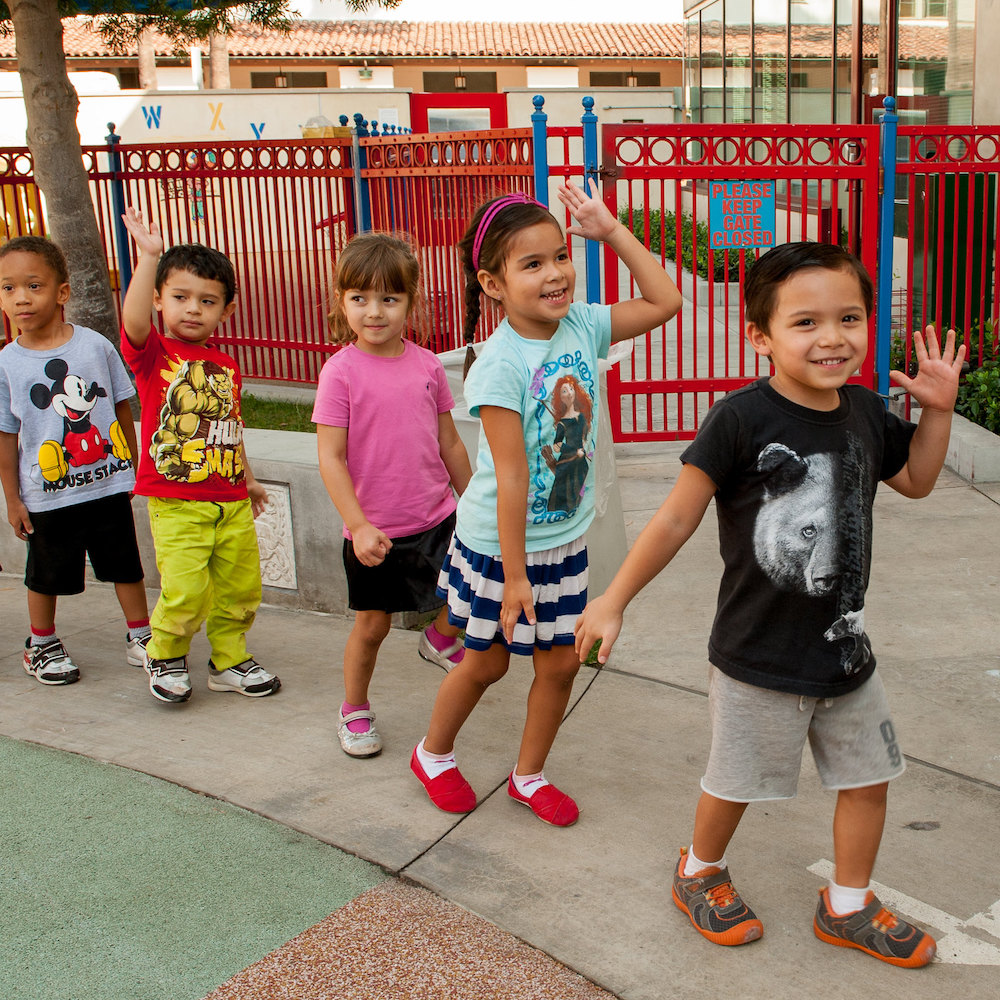Harmony Homes
September 19, 2023
Essential Life Skills Every Child Needs

Essential Life Skills Every Child Needs
Children are sponges for new information, so it is important to teach them the right life skills at an early age. You know that your child needs to learn how to read, write, and count. But what else do they need? The truth is that there are many more essential life skills than you may realize that will help your child thrive throughout their life.
Being Able to Read
Reading is an essential life skill. Reading helps you to learn new things and understand the world around you. When you read, it allows your mind to explore different ideas and concepts that can be applied in real-life situations. Reading also helps children develop their vocabulary, spelling and grammar skills as well as creativity.
Solving Problems
Learning to solve problems is an important life skill. It is a key part of learning, and it’s something that you can use in all areas of your life.
Problem-solving skills are useful for everything from figuring out how to do your homework to figuring out how to make more money at work. They help us make decisions and think about things differently when we’re stuck on something new or difficult.

These are the life skills that help support children to thrive
These are the life skills that help support children to thrive:
Communication Skills
Communication skills are important in many areas of life. They help children to make friends and get along with others, which is vital for their social development. Communication skills also help kids succeed in school because they can talk to teachers and classmates about their work or any other problems they may have.
Teamwork
Teamwork is an essential life skill that everyone needs to learn. It’s not just for adults, kids need to know how to work together too! They can use teamwork when they play games with their friends or family members, or even while they’re doing homework.
Leadership
Leadership is the ability to influence others and inspire them to take action. Leadership can be learned, practised and developed over time with support from others, including teachers and parents. Leadership is about being a role model for others by showing them how you would like them to act in certain situations.
Self-Management/Awareness
Self-management is the ability to control your own emotions and behavior. It’s about being aware of how you feel, why you feel that way and what you can do about it. This skill helps children learn how their actions affect others, as well as themselves.
Life Skills that Require Guidance
As parents, we want nothing more than for our children to learn essential life skills and be prepared for the future. But how can we ensure that they are learning these skills?
Confidence
- Confidence is a skill that can be learned.
- It’s important for success in all areas of life.
- It’s not something you’re born with, but rather something that you build over time through practice and experience.
- The more confident you feel about yourself and your abilities, the better off you’ll be as an individual.
Empathy
Empathy is the ability to understand and share the feelings of another. It’s the ability to understand and share the feelings of others. Empathy is a feeling of understanding and compassion for someone else’s situation.
Healthy Eating
The first thing to understand about healthy eating is that it’s not just about what you put in your mouth, but also how much. If you eat too much food at any one time, even if it’s all healthy stuff, it will still be bad for you because of its effect on your body.
Time Management
Time management is a skill that can help you achieve your goals and live your best life. It’s also something that many people struggle with, so it’s important to learn how to manage your time effectively as early as possible.
Being Able to Set Goals
Setting goals is a skill that every child should be able to do. To set effective goals, it’s important to consider the following:
- Goals should be achievable.
- Deadlines are also important for achieving success.
How to Think in New Ways and Be Creative
Creativity is an essential life skill. Creativity is about more than art and music; it’s about the ability to think in new ways, which can help you solve problems, learn new things and be more creative overall. Here are some tips on how to encourage your child’s creativity:
- Encourage your child’s curiosity by asking questions like “What do you think will happen next?” or “Why did that happen?” They might not have an answer right away but asking these questions will help them develop their ideas about the world around them which is where creativity comes from!
- Get messy! Letting kids play with messy substances like paint can lead them down unexpected paths of discovery.
Working in Groups
Children need to learn how to work in groups at school and home. This is a valuable life skill that will help them throughout their lives.
- How can you make sure your child has a chance to speak?
- How can you make sure your child has a chance to contribute?
Showing Respect for Yourself and Others
Respecting others is an important life skill that your child will need to learn. She should be respectful of everyone, including family members, her peers and adults. The ability to show respect for others shows maturity and shows that you have good character.
Developing a Mind For Innovation and Creativity
Creativity is an essential life skill that can help you solve problems and make connections. It’s also a requirement for innovation, which is important for any type of business or career.
Innovation happens when someone thinks outside the box and creativity allows us to do that by giving us new ideas, perspectives and solutions.
Effective Life Skills Make Easier to Navigate Challenges
Here are life skills that are essential to survival. They’re the skills you need to get through the day and keep yourself healthy, safe, and comfortable.
How to Set and Achieve Goals
As your child grows, he or she will be asked to set and achieve goals. This is a skill that can help your child succeed in many areas of life, from school to sports to relationships. Setting goals is an important part of achieving success in any area of life.
How to Communicate Effectively
Communication is a skill that’s important in all areas of life. It’s not just talking–it’s communicating effectively and clearly, so you can get your point across to the people around you.
Communication skills are learned, not innate. If you don’t have good communication skills, it doesn’t mean that there’s something wrong with your brain; it just means that someone hasn’t taught you how to communicate well yet!
How to Handle Emotions
Emotions are a natural part of being human. They can be positive or negative, but they’re always important. Children need to learn how to handle their emotions healthily so they can express themselves appropriately and respect others’ feelings.
How to Interact Socially
- How to start a conversation.
- The art of listening.
- How to ask questions and be a good listener.
- How to tell a story that will hold your audience’s attention, whether it’s in person or on paper (or screen).
- How to compliment people with genuine sincerity and enthusiasm, without being cloying or insincere. This is an especially important skill for kids who struggle with self-esteem issues or shyness; it helps them feel good about themselves and encourages them in their interactions with others!
- Fun activities for both indoors and out: board games, card games like Go Fish!, outdoor sports such as basketball or soccer…the list goes on!
Interaction Skills Required for Effective Interaction
Life skills are important for everyone, but they’re especially critical for children. Kids need to learn how to communicate effectively and resolve conflicts peacefully.
The Ability to Make Friends
Making friends is an essential life skill that children need to interact with other people. This is especially true for children who live in a single-parent household, as they may not have anyone else around to play with or talk to.
How to Handle Stress
Before we get too far into this, it’s important to acknowledge that stress is part of life. It can be good and bad. Stressful situations teach us how to deal with difficult emotions and situations, but if left unchecked it can have negative effects on your health.
The Skill Of Negotiation
Negotiation is a skill that can be used in all aspects of life, from negotiating the price of a car to working out an agreement with your parents. It’s something you’ll use over and over again as you grow older, so it’s important to learn how to do it well!
Social Skills
Social skills are the cornerstone of life. They teach us how to get along with other people, make friends, interact with those from different backgrounds and cultures, and be a good friend or teacher.
There are many different types of social skills-
- from listening well and giving compliments.
- to apologizing when you’ve done something wrong.
That all helps create a healthy environment in which children can grow up learning how best to interact with others as they mature into adults themselves.
Money Management
Kids need to learn about money management early on in life so that they can make good financial decisions as adults. Here are a few things you can teach your child:
- How to save money.
- How to spend wisely.
- How not just earn but also manage their earned income wisely!
They need to Learn How to Act with Integrity and be Trustworthy.
Integrity is the ability to act with integrity and be trustworthy. It’s about doing the right thing even when no one is watching, keeping your word and being honest.
Conclusion
As you can see, there are many different types of life skills that children need to learn to be successful later in life. These skills will help them thrive and make them happier people who can deal with challenges more easily. There is no doubt in my mind that if everyone knew what these skills were and how important they are for developing children, then everyone would be working hard on teaching them!


